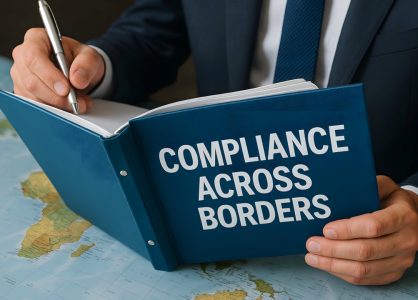In a world where businesses operate seamlessly across borders, governance has become one of the most pressing challenges for multinational corporations. While supply chains, digital platforms, and capital flows are global, the rules that govern them remain stubbornly local.
From the European Union’s strict ESG directives to the United States’ shareholder protection rules and Asia’s diverse regulatory frameworks, multinational companies are caught in a web of compliance fragmentation. This complexity not only raises costs but also exposes organizations to significant risk if obligations are missed.
At Governancepedia, we call this the global governance gap — the disconnect between borderless business operations and fragmented oversight frameworks.
Why Multinationals Struggle with Oversight
- Regulatory Fragmentation
No two jurisdictions are alike. A disclosure required by the EU may not exist in the US, while an Asia-Pacific regulator may enforce an entirely different approach to risk management.
- Cultural and Legal Differences
Governance expectations reflect cultural values. In some regions, governance emphasizes transparency and shareholder rights; in others, family-owned structures or state involvement play a dominant role.
- Operational Complexity
For a company operating in 40+ countries, tracking board obligations, reporting deadlines, and compliance requirements is a logistical nightmare.
- Dynamic Change
Global regulations evolve constantly — ESG standards, AI oversight, and cybersecurity rules are just a few areas where requirements shift rapidly. As Financial Times highlights, this leaves multinationals scrambling to adapt policies and practices in real time.
The Risks of Ignoring the Gaps
- Reputational Damage – A governance failure in one jurisdiction can tarnish a brand globally.
- Financial Penalties – Non-compliance often leads to fines and restrictions, draining resources.
- Investor Confidence – Inconsistent governance practices across markets erode trust in global companies.
- Operational Inefficiency – Managing governance in silos wastes resources and weakens oversight.
Deloitte emphasizes that the governance of multinational corporations must evolve to be more proactive, integrated, and resilient to close these gaps.
Solutions Multinationals Are Adopting
Forward-looking organizations are finding ways to unify governance despite regional differences:
- Centralized Oversight Frameworks – Establishing a single global governance framework that aligns with local adaptations.
- Governance Technology – Leveraging dashboards, compliance trackers, and AI-driven insights to monitor obligations across jurisdictions.
- Board Training & Diversity – Ensuring directors understand cultural and regulatory nuances in every market.
- Knowledge Hubs & Best Practice Sharing – Using platforms like Governancepedia to access insights, resources, and case studies that bridge governance gaps.
Governancepedia: A Knowledge Hub for Global Oversight
At Governancepedia, our mission is to make governance knowledge accessible, comprehensive, and global. By exploring oversight practices around the world, we help organizations:
- Understand how governance differs across regions.
- Stay ahead of global compliance challenges.
- Access insights, research, and best practices to unify oversight.
👉 Our knowledge hub explores governance challenges worldwide, helping organizations understand and navigate global oversight.
Final Thoughts
Global companies thrive on interconnected markets, but governance hasn’t caught up to globalization. The governance gap — the tension between borderless operations and fragmented oversight — is one of the defining challenges of our era.
The companies that succeed won’t just comply region by region. They’ll embrace global frameworks, invest in governance technology, and learn from shared knowledge.
At Governancepedia, we believe bridging these gaps is possible — and essential — for creating stronger, more resilient organizations in a connected world.

